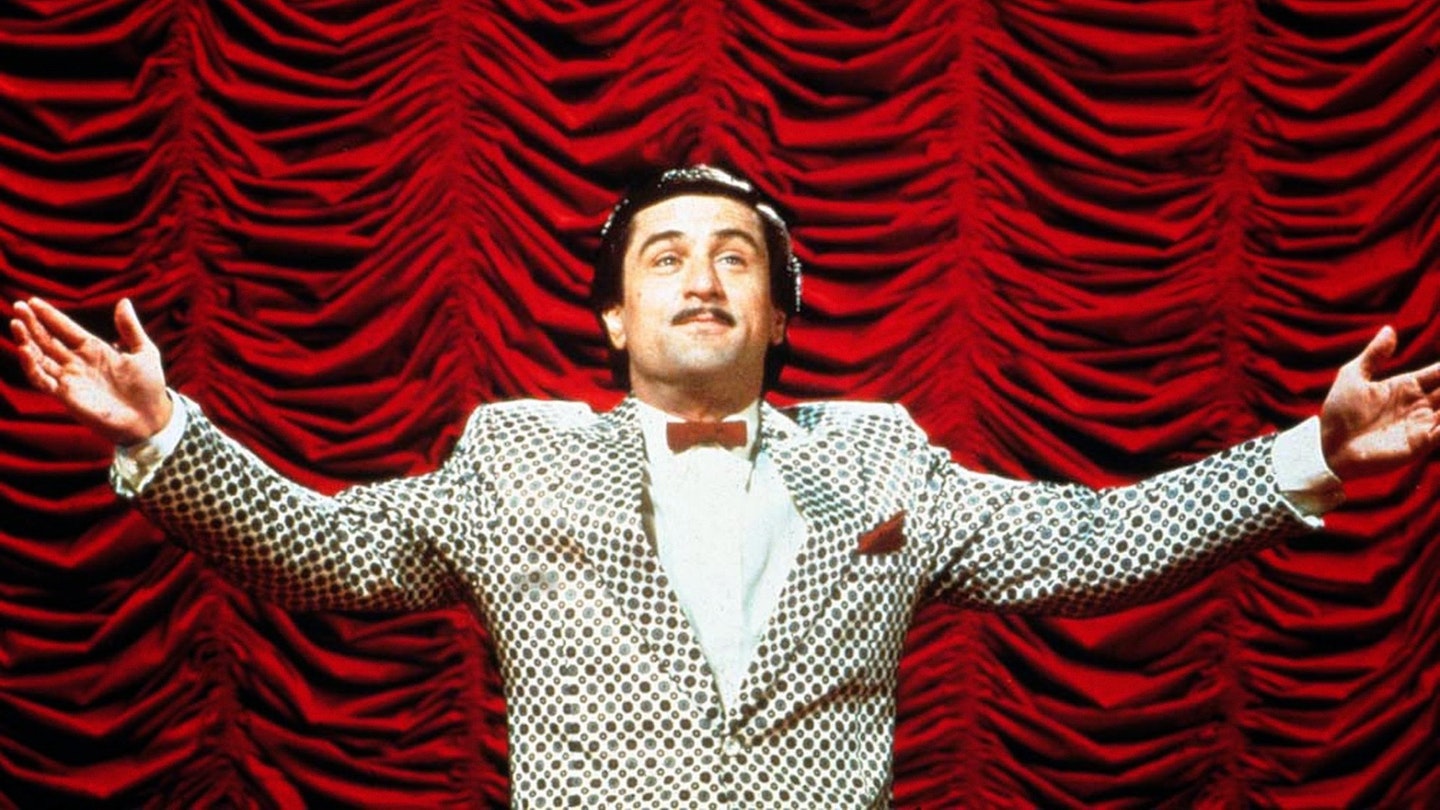Short of skipping off with Cannes' biggest gong, the Palme d'Or, there are few greater honours for a filmmaker than being asked to open the festival. Cinema's greats from Kurosawa and Fellini to Scorsese and the Coen brothers have all had movies kick off the film-lover's festival of choice. Some have been great (Amarcord), some good (Witness) and some... well, some have been Basic Instinct. We've sorted the wheat from the chaff to look back at a few of the greatest opening nights of Cannes gone by.
The first Cannes Film Festival wasn't just a celebration of cinema, it was also a cheeky Gallic two fingers to the parade of fascist propaganda that had been the previous year's Venice festival. Fittingly, the inaugural Cannes was rung in with peeling bells - in this case pulled by a hunchbacked Charles Laughton in the 1939 black-and-white adaptation of The Hunchback Of Notre Dame. As moving as William Dieterle's take on Victor Hugo's romantic classic was, Quasimodo and Esmerelda's impossible love was more than a little overshadowed by the outbreak of World War Two. It would be the first and last screening that year: the entire festival was called of a day later. And not even The Da Vinci Code managed that.
Like Woody Allen's Radio Days or the Coens' A Serious Man, Amarcord ('I Remember') plays from the pages of a filmmaker's childhood diary. In this case, the diary belonged to Federico Fellini and the Cannes opening night throng were some of the first to share in it. Perhaps not seen in the same class as La Dolce Vita or 8 1/2, this nostalgia-soaked memoir of Fellini's salad days in the Adriatic town of Rimini deserves another viewing. Flighty, fun and bittersweet, it went down a storm in Cannes. Entered out of competition at Cannes, it went on to win the Oscar for Best Foreign Language Film the following year.
Nothing better illustrates the talent-spotting genius of the Cannes Festival than its appreciation of Martin Scorsese. The New Yorker was awarded the Palme d'Or way back in 1976 for Taxi Driver (that's 31 years before the Academy handed him an Oscar), and he was invited back to open proceedings with a black comedy that did for stand-ups comedians what his last Cannes entry had done for Manhattan cabbies. One of a handful of Cannes openers to be entered in competition, The King Of Comedy couldn't repeat Taxi Driver's trick though, despite, or perhaps because of their thematic similarities.
As choices like Hair and The Fifth Element show, Cannes like to kick off with a little fantasie. Who better to turn to for an opening night treat, then, than those masters of mystique, the Coen brothers? Much-underrated, The Hudsucker Proxy is their love letter to the cinema of the '30s and '40s. The homage to the movies of Preston Sturges and Frank Capra offered its French audience familiar, and fond, reference points. Ultimately a critical bomb, Hudsucker was well received at Cannes, though ultimately pipped to the Palme d'Or by Pulp Fiction.
While Danny Boyle's hard-partying Trainspotting crew had a crack at turning Cannes into Ibiza Town, another hedonist treat opened the festival. Ridicule, Patrice Leconte's acidic comedy of manners set in the Versailles court of Louis XVI, boasted wordplay sharp enough to cut glass, back-biting, political intrigue and decadence to bath in. No wonder it went down so well with the assembled film industry types. It was Leconte's second Cannes screening - his first, 1989 thriller Monsieur Hire, was also well-received - but this time festival plaudits were a springboard to a Miramax deal and an Oscar nomination.
There's a Gallic flamboyance to Baz Luhrmann's Red Curtain trilogy that evokes the spirit of the musicals of Renoir, Resnais and Demy. Little wonder then that the Aussie auteur was invited to give the 2001 festival a high-kicking start with his interpretation of the Orpheus myth. Strictly Ballroom had been rapturously received at Cannes in 1992, but whether it was the over-caffeinated editing or Ewan McGregor's singing, the movie couldn't quite match the majesty of Jean Renoir's Cancan, Cannes' Moulin Rouge benchmark. However, it did provide the festival with plenty of sparkle, both on screen and - thanks to the presence of Kidman, McGregor et al - on the Croisette.
In the hands of anyone but Pedro Almodóvar a tale of sexual abuse, Catholic guilt, transsexuality and drug abuse might have been a, well, heavy-going way to kick of the festival. But such is the Spaniard's lightness of touch that Bad Education, a spiralling noir that spans decades, proved a vibrant opener. "To play the part of the person who opens the curtain is a prize in itself," said Almodóvar of the screening, hinting at his so-far unconsummated love affair with Cannes. But while he's still to win a Palme d'Or, the honour of opening the festival would clearly do for starters.
The choice of 2009's opener was a double first for the festival. When the balloon(s) went up, it was first time an animation had been shown on the opening night and the first time Cannes' cineastes had ever donned 3D lunettes. And there'd be no cone of shame for Carl, Russell and Dug either because Pixar's spirit-filled Amazonian adventure wowed the festival, just as it would later dazzle the Academy. More than that, though, the choice of a 3D opener in the year when the format went supernova was proof that Cannes could ride the zeitgeist with the best of 'em.
Wes Anderson's whimsical tribute to young love was also a typically literate love letter to the New Waves, French and American, from one of its biggest admirers. Anderson's touchpoints - Godard, Truffaut, Scorsese, Hal Ashby, Louis Malle - all found a home from home on the Mediterranean, and the American auteur was similarly feted for his nostalgic tale of eloping tweens, world-weary adults and racoon-based headwear.
